Back to Page
Amazon A+ Content
Hacks To Write A Product Copy That Converts
Hacks To Write A Product Copy That Converts
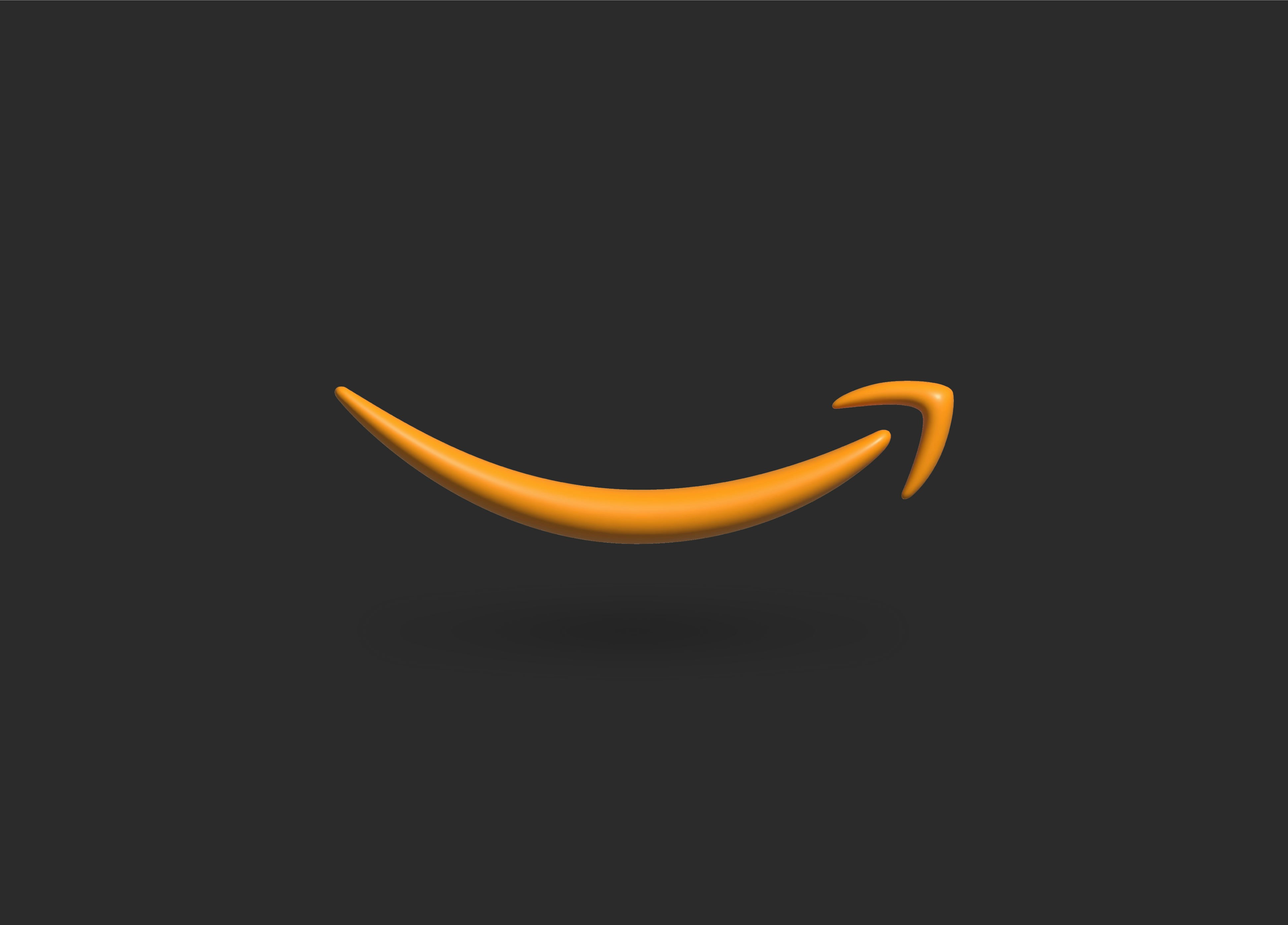

Back to Page
Amazon A+ Content
Hacks To Write A Product Copy That Converts

Episode 2: Content Optimization
Does product copy increase conversion rates? Naah! This is what most sellers think. And it’s not their fault; it’s easy to take a near-enough-is-good-enough approach to your Amazon listing. After all, shoppers often skip the description in favor of reviews and images. Sorry to break your bubble, but the truth is that the details of your listings are equally important, even if you have reviews and images. A fully optimized Amazon copy is a secret weapon most big sellers rely on to convert their would-be buyers and make regular sales. Would you buy from a buyer who has left the bullet points and description blank? No, you won’t, because you need a copy to tell your customers what your images and reviews couldn’t. To help you optimize your listing, I have compiled 8 hacks and tricks no one would have told you to use for listing optimization:
8 Great Hacks No One Told You For Writing A Converting Amazon Copy
Hack #1: Benefits & Not Features!
Imagine you are at a party, and someone is constantly talking about themselves and showing no interest in what you say or what you want. It would be so annoying, wouldn’t it be? Same goes for your listing copy. As harsh it may sound, most people don’t care about how many sleepless nights your research and development team spent to add the high-tech features into the product; all they care about is themselves.

A buyer only wants to hear what’s in the store for them. So you should try to highlight your features in such a way that it sounds like a benefit to the customers. TL;DR is something that a feature is; a benefit is what the user can accomplish with it. While writing a copy, examine the list of your features and connect them with a benefit. For example, instead of writing 128 GB storage space, you can write 100+ songs in your pocket! Sounds interesting, doesn’t it?
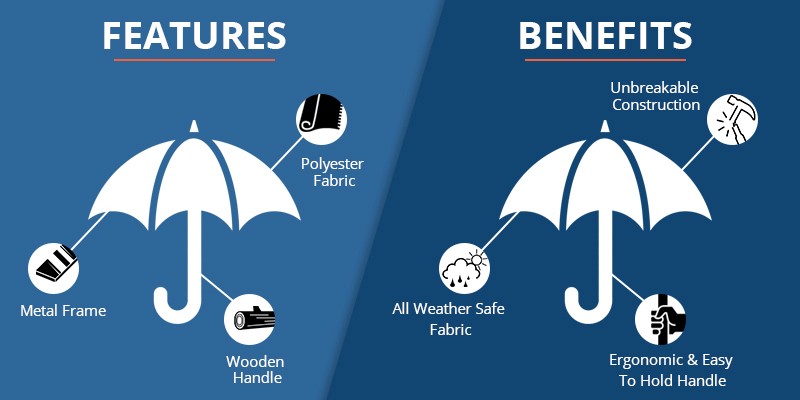
Hack #2: Tell Why Your Product Is One In A Million

Let’s get real – every second product on Amazon is more or less the same. If you want to stand out, your listing copy should convey what makes your product different from the others. If you are selling a supplement and your formula is the most potent, natural and effective, make sure that information is clearly described in your copy. Also, try to make your content as engaging and user-friendly as possible. Don’t write as if you are writing a boring instruction manual because, believe me; no one will read the whole thing ever. By using the same vocabulary and dialect your shoppers use every day, you will be able to engage them effectively. This engagement is what most likely will sell your product.

Hack #3: To Be The Best, Learn From The Best

Head on over and see how your competitor’s listing looks like. What they write, how they write, check their content and structure yours. If there is something most of your competitors are writing, you should include that in your listing too! Are they using HTML to bold their product features? Is their content highlighting multiple benefits or just one? Do they use description for writing information about their product, or do they just write their brand story? Remember, the biggest seller on Amazon is there for a reason. They have already crafted a path and if you walk on that path instead of finding your own, the chances of your success can increase.
Hack #4: Review The Reviews (There’s A Lot Hidden There)
Many of the customers, including you and me, have done this. Opened the listings, viewed the images, skipped the description and headed straight to the reviews. As a seller, optimizing the content must have felt like a waste of time. Thankfully, you can use this habit of the customer to find your product’s unique selling points (and even some flaws). After getting enough good and bad reviews, you can modify your content according to them. If shoppers are consistently praising a feature that barely got a mention in your copy, edit your bullet points and description to highlight this feature. There is a reason your reviews mention those features over the others and if you let your customers know about it, you can capture those fence-sitters who are looking for a reason to click on the buy now button.
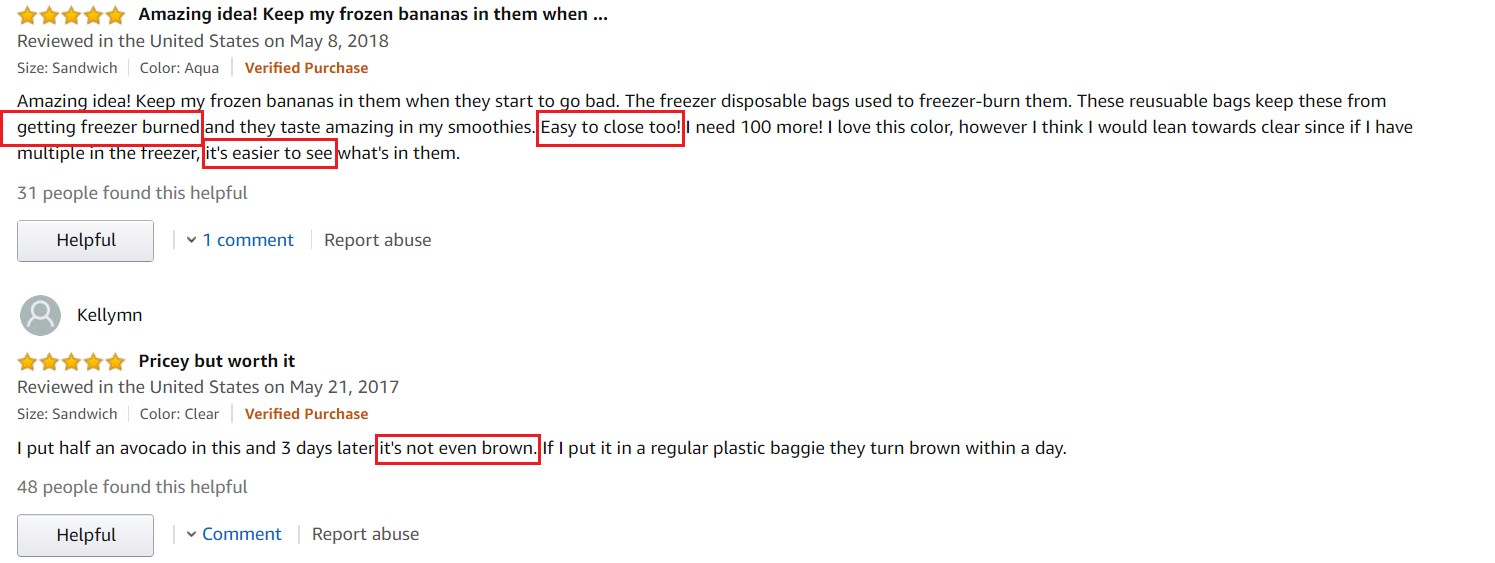
Pro Tip: Get more information from your competitors. You can look at the competitor’s reviews and Q&A section to identify their weaknesses and strong points. That is a big win and one of the many tactics we use to convert our listings into sales.
Hack #5: Use The Best Keywords & Know Where To Use Them

You know the drill - use the best keywords, rank higher, increase visibility and sell more. You know the magic ingredient too! Use great keywords. But one that that you probably didn’t know was what the right way to use them is. There are a few things you need to take care of. First, don’t repeat the keywords in title and search terms. It’s a myth that the keywords from your title, bullet points and description are considered for organic ranking. Only the keywords from the title and search terms are taken into account for organic ranking. The keywords you add in bullet points and description are considered for PPC. Also, you should not just target the high volume keywords but use one or two low volume keywords as well because there is going to be less traffic on them and so your chances of ranking on page 1 for that keyword is much more higher.
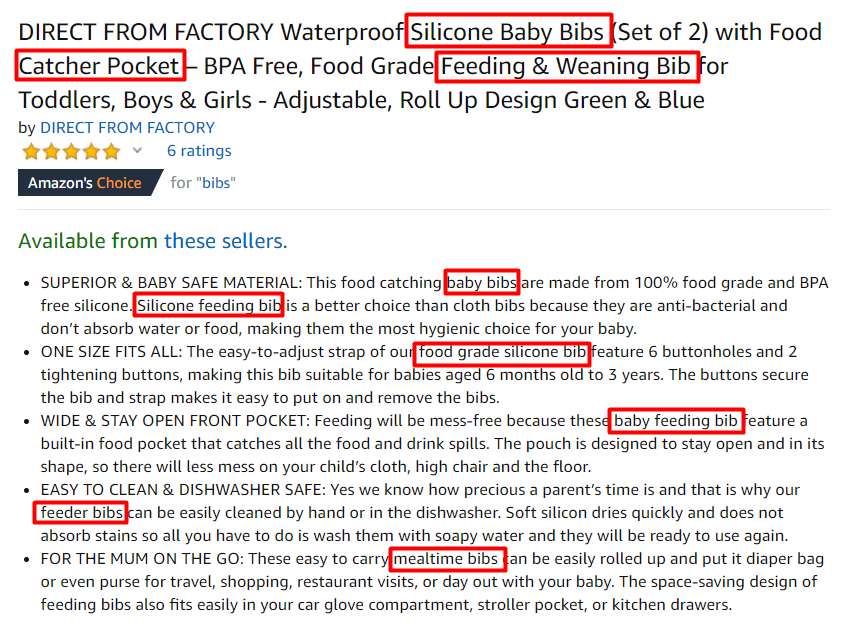
Hack #6: But Don’t Just Stuff Them (Please Don’t)
Yeah, A9 may be the God (who rarely shines upon you), but the customer is the king. And your job is to make their experience as pleasant as possible. Trust me; nothing turns off a buyer more than a messy and untidy listing. Before stuffing your listing title, bullet points and description with keywords, ask yourself one thing, will the shoppers love to read it? They won’t. No one won’t. Here’s what you need to do: Instead of adding every possible keyword into your title, bullet point and description, just use the strongest keywords which fulfill the two conditions: (a) they are high volume and relevant and (b) they are grammatically correct. This way, you will not only avoid the mess you were about to create on the listings but also end up using some great and unique keywords.
Hack #7: Tell ’Em What They Need To Do!

The only thing customers should be doing when they arrive at your listing is clicking on the coveted “Add To Cart button”. It may sound like an exaggeration, but you gotta aim at the moon, so you land up somewhere amongst the stars. Anyway, to make them click on that button, you will have to tell them to click on that button, meaning add a strong and wise call to action somewhere in your bullet points and description. A good call to action is a prerequisite for any landing page and your Amazon listing is no less than a landing page. So it requires a call to action like Click on the Add To Cart button now! Or Buy now and gift it to the wine lover in your list, or what are you waiting for? Buy now before the stock ends! But don’t just add the call to action anywhere randomly in your listing. Always add it in the last bullet point and the last line of description.
Hack #8: Every Shopper Is Going To Be A Grammar Nazi
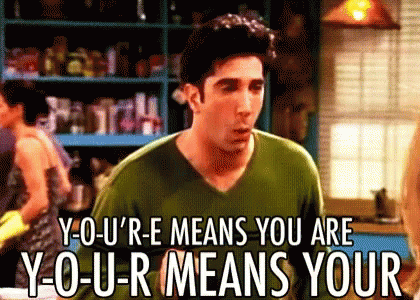
Remember what I said for images in the first episode of this series: If you have blur images, the customer considers your listing as unprofessional. Same for content, grammatical mistakes have proven to negatively affect sales of a product. This is because; even small grammatical errors or spelling errors can obstruct the reading flow and disengage the shoppers. And trust me on this: Shoppers might not read the listing but they would find grammatical mistakes very easily. Proofread your spelling errors, fix poor grammar, and edit expressions that don’t make sense. Don’t hesitate to dust off your old English textbooks or buy a grammar book if needed.
So, It’s A Wrap For Today!
Writing great content does require legwork, but if done right, it will surely pay tenfold. The key to writing a converting copy is to look at it from a customer’s eye and not the seller's point of view. Once you master that, you will be able to give yourself the potential to make a sale after the sale with no extra work on your part. If you find yourself too busy to write your listing copy yourself, Amazon Listing Optimization Experts at eStore Factory can help you out.
Learn Everything About Increasing Conversion Rates In This Series:
On popular demand, I am thrilled to write a blog series on increasing conversion rates. So many of you told me to write a blog on this topic but covering every minute detail in one post was not possible, so I decided to make a series out of it. It’s a four-episode series and in each episode, we will take a more in-depth look at the elements that can help you optimize your conversion rates (Images, Reviews, Copy, A+ Page). In the next episode, we will learn about the magic formula to make converting A+ pages. Till then, stay tuned, and happy selling! Also, let me know if you want me to cover any other topics :)
Episode 2: Content Optimization
Does product copy increase conversion rates? Naah! This is what most sellers think. And it’s not their fault; it’s easy to take a near-enough-is-good-enough approach to your Amazon listing. After all, shoppers often skip the description in favor of reviews and images. Sorry to break your bubble, but the truth is that the details of your listings are equally important, even if you have reviews and images. A fully optimized Amazon copy is a secret weapon most big sellers rely on to convert their would-be buyers and make regular sales. Would you buy from a buyer who has left the bullet points and description blank? No, you won’t, because you need a copy to tell your customers what your images and reviews couldn’t. To help you optimize your listing, I have compiled 8 hacks and tricks no one would have told you to use for listing optimization:
8 Great Hacks No One Told You For Writing A Converting Amazon Copy
Hack #1: Benefits & Not Features!
Imagine you are at a party, and someone is constantly talking about themselves and showing no interest in what you say or what you want. It would be so annoying, wouldn’t it be? Same goes for your listing copy. As harsh it may sound, most people don’t care about how many sleepless nights your research and development team spent to add the high-tech features into the product; all they care about is themselves.

A buyer only wants to hear what’s in the store for them. So you should try to highlight your features in such a way that it sounds like a benefit to the customers. TL;DR is something that a feature is; a benefit is what the user can accomplish with it. While writing a copy, examine the list of your features and connect them with a benefit. For example, instead of writing 128 GB storage space, you can write 100+ songs in your pocket! Sounds interesting, doesn’t it?

Hack #2: Tell Why Your Product Is One In A Million

Let’s get real – every second product on Amazon is more or less the same. If you want to stand out, your listing copy should convey what makes your product different from the others. If you are selling a supplement and your formula is the most potent, natural and effective, make sure that information is clearly described in your copy. Also, try to make your content as engaging and user-friendly as possible. Don’t write as if you are writing a boring instruction manual because, believe me; no one will read the whole thing ever. By using the same vocabulary and dialect your shoppers use every day, you will be able to engage them effectively. This engagement is what most likely will sell your product.

Hack #3: To Be The Best, Learn From The Best

Head on over and see how your competitor’s listing looks like. What they write, how they write, check their content and structure yours. If there is something most of your competitors are writing, you should include that in your listing too! Are they using HTML to bold their product features? Is their content highlighting multiple benefits or just one? Do they use description for writing information about their product, or do they just write their brand story? Remember, the biggest seller on Amazon is there for a reason. They have already crafted a path and if you walk on that path instead of finding your own, the chances of your success can increase.
Hack #4: Review The Reviews (There’s A Lot Hidden There)
Many of the customers, including you and me, have done this. Opened the listings, viewed the images, skipped the description and headed straight to the reviews. As a seller, optimizing the content must have felt like a waste of time. Thankfully, you can use this habit of the customer to find your product’s unique selling points (and even some flaws). After getting enough good and bad reviews, you can modify your content according to them. If shoppers are consistently praising a feature that barely got a mention in your copy, edit your bullet points and description to highlight this feature. There is a reason your reviews mention those features over the others and if you let your customers know about it, you can capture those fence-sitters who are looking for a reason to click on the buy now button.

Pro Tip: Get more information from your competitors. You can look at the competitor’s reviews and Q&A section to identify their weaknesses and strong points. That is a big win and one of the many tactics we use to convert our listings into sales.
Hack #5: Use The Best Keywords & Know Where To Use Them

You know the drill - use the best keywords, rank higher, increase visibility and sell more. You know the magic ingredient too! Use great keywords. But one that that you probably didn’t know was what the right way to use them is. There are a few things you need to take care of. First, don’t repeat the keywords in title and search terms. It’s a myth that the keywords from your title, bullet points and description are considered for organic ranking. Only the keywords from the title and search terms are taken into account for organic ranking. The keywords you add in bullet points and description are considered for PPC. Also, you should not just target the high volume keywords but use one or two low volume keywords as well because there is going to be less traffic on them and so your chances of ranking on page 1 for that keyword is much more higher.

Hack #6: But Don’t Just Stuff Them (Please Don’t)
Yeah, A9 may be the God (who rarely shines upon you), but the customer is the king. And your job is to make their experience as pleasant as possible. Trust me; nothing turns off a buyer more than a messy and untidy listing. Before stuffing your listing title, bullet points and description with keywords, ask yourself one thing, will the shoppers love to read it? They won’t. No one won’t. Here’s what you need to do: Instead of adding every possible keyword into your title, bullet point and description, just use the strongest keywords which fulfill the two conditions: (a) they are high volume and relevant and (b) they are grammatically correct. This way, you will not only avoid the mess you were about to create on the listings but also end up using some great and unique keywords.
Hack #7: Tell ’Em What They Need To Do!

The only thing customers should be doing when they arrive at your listing is clicking on the coveted “Add To Cart button”. It may sound like an exaggeration, but you gotta aim at the moon, so you land up somewhere amongst the stars. Anyway, to make them click on that button, you will have to tell them to click on that button, meaning add a strong and wise call to action somewhere in your bullet points and description. A good call to action is a prerequisite for any landing page and your Amazon listing is no less than a landing page. So it requires a call to action like Click on the Add To Cart button now! Or Buy now and gift it to the wine lover in your list, or what are you waiting for? Buy now before the stock ends! But don’t just add the call to action anywhere randomly in your listing. Always add it in the last bullet point and the last line of description.
Hack #8: Every Shopper Is Going To Be A Grammar Nazi

Remember what I said for images in the first episode of this series: If you have blur images, the customer considers your listing as unprofessional. Same for content, grammatical mistakes have proven to negatively affect sales of a product. This is because; even small grammatical errors or spelling errors can obstruct the reading flow and disengage the shoppers. And trust me on this: Shoppers might not read the listing but they would find grammatical mistakes very easily. Proofread your spelling errors, fix poor grammar, and edit expressions that don’t make sense. Don’t hesitate to dust off your old English textbooks or buy a grammar book if needed.
So, It’s A Wrap For Today!
Writing great content does require legwork, but if done right, it will surely pay tenfold. The key to writing a converting copy is to look at it from a customer’s eye and not the seller's point of view. Once you master that, you will be able to give yourself the potential to make a sale after the sale with no extra work on your part. If you find yourself too busy to write your listing copy yourself, Amazon Listing Optimization Experts at eStore Factory can help you out.
Learn Everything About Increasing Conversion Rates In This Series:
On popular demand, I am thrilled to write a blog series on increasing conversion rates. So many of you told me to write a blog on this topic but covering every minute detail in one post was not possible, so I decided to make a series out of it. It’s a four-episode series and in each episode, we will take a more in-depth look at the elements that can help you optimize your conversion rates (Images, Reviews, Copy, A+ Page). In the next episode, we will learn about the magic formula to make converting A+ pages. Till then, stay tuned, and happy selling! Also, let me know if you want me to cover any other topics :)
Episode 2: Content Optimization
Does product copy increase conversion rates? Naah! This is what most sellers think. And it’s not their fault; it’s easy to take a near-enough-is-good-enough approach to your Amazon listing. After all, shoppers often skip the description in favor of reviews and images. Sorry to break your bubble, but the truth is that the details of your listings are equally important, even if you have reviews and images. A fully optimized Amazon copy is a secret weapon most big sellers rely on to convert their would-be buyers and make regular sales. Would you buy from a buyer who has left the bullet points and description blank? No, you won’t, because you need a copy to tell your customers what your images and reviews couldn’t. To help you optimize your listing, I have compiled 8 hacks and tricks no one would have told you to use for listing optimization:
8 Great Hacks No One Told You For Writing A Converting Amazon Copy
Hack #1: Benefits & Not Features!
Imagine you are at a party, and someone is constantly talking about themselves and showing no interest in what you say or what you want. It would be so annoying, wouldn’t it be? Same goes for your listing copy. As harsh it may sound, most people don’t care about how many sleepless nights your research and development team spent to add the high-tech features into the product; all they care about is themselves.

A buyer only wants to hear what’s in the store for them. So you should try to highlight your features in such a way that it sounds like a benefit to the customers. TL;DR is something that a feature is; a benefit is what the user can accomplish with it. While writing a copy, examine the list of your features and connect them with a benefit. For example, instead of writing 128 GB storage space, you can write 100+ songs in your pocket! Sounds interesting, doesn’t it?

Hack #2: Tell Why Your Product Is One In A Million

Let’s get real – every second product on Amazon is more or less the same. If you want to stand out, your listing copy should convey what makes your product different from the others. If you are selling a supplement and your formula is the most potent, natural and effective, make sure that information is clearly described in your copy. Also, try to make your content as engaging and user-friendly as possible. Don’t write as if you are writing a boring instruction manual because, believe me; no one will read the whole thing ever. By using the same vocabulary and dialect your shoppers use every day, you will be able to engage them effectively. This engagement is what most likely will sell your product.

Hack #3: To Be The Best, Learn From The Best

Head on over and see how your competitor’s listing looks like. What they write, how they write, check their content and structure yours. If there is something most of your competitors are writing, you should include that in your listing too! Are they using HTML to bold their product features? Is their content highlighting multiple benefits or just one? Do they use description for writing information about their product, or do they just write their brand story? Remember, the biggest seller on Amazon is there for a reason. They have already crafted a path and if you walk on that path instead of finding your own, the chances of your success can increase.
Hack #4: Review The Reviews (There’s A Lot Hidden There)
Many of the customers, including you and me, have done this. Opened the listings, viewed the images, skipped the description and headed straight to the reviews. As a seller, optimizing the content must have felt like a waste of time. Thankfully, you can use this habit of the customer to find your product’s unique selling points (and even some flaws). After getting enough good and bad reviews, you can modify your content according to them. If shoppers are consistently praising a feature that barely got a mention in your copy, edit your bullet points and description to highlight this feature. There is a reason your reviews mention those features over the others and if you let your customers know about it, you can capture those fence-sitters who are looking for a reason to click on the buy now button.

Pro Tip: Get more information from your competitors. You can look at the competitor’s reviews and Q&A section to identify their weaknesses and strong points. That is a big win and one of the many tactics we use to convert our listings into sales.
Hack #5: Use The Best Keywords & Know Where To Use Them

You know the drill - use the best keywords, rank higher, increase visibility and sell more. You know the magic ingredient too! Use great keywords. But one that that you probably didn’t know was what the right way to use them is. There are a few things you need to take care of. First, don’t repeat the keywords in title and search terms. It’s a myth that the keywords from your title, bullet points and description are considered for organic ranking. Only the keywords from the title and search terms are taken into account for organic ranking. The keywords you add in bullet points and description are considered for PPC. Also, you should not just target the high volume keywords but use one or two low volume keywords as well because there is going to be less traffic on them and so your chances of ranking on page 1 for that keyword is much more higher.

Hack #6: But Don’t Just Stuff Them (Please Don’t)
Yeah, A9 may be the God (who rarely shines upon you), but the customer is the king. And your job is to make their experience as pleasant as possible. Trust me; nothing turns off a buyer more than a messy and untidy listing. Before stuffing your listing title, bullet points and description with keywords, ask yourself one thing, will the shoppers love to read it? They won’t. No one won’t. Here’s what you need to do: Instead of adding every possible keyword into your title, bullet point and description, just use the strongest keywords which fulfill the two conditions: (a) they are high volume and relevant and (b) they are grammatically correct. This way, you will not only avoid the mess you were about to create on the listings but also end up using some great and unique keywords.
Hack #7: Tell ’Em What They Need To Do!

The only thing customers should be doing when they arrive at your listing is clicking on the coveted “Add To Cart button”. It may sound like an exaggeration, but you gotta aim at the moon, so you land up somewhere amongst the stars. Anyway, to make them click on that button, you will have to tell them to click on that button, meaning add a strong and wise call to action somewhere in your bullet points and description. A good call to action is a prerequisite for any landing page and your Amazon listing is no less than a landing page. So it requires a call to action like Click on the Add To Cart button now! Or Buy now and gift it to the wine lover in your list, or what are you waiting for? Buy now before the stock ends! But don’t just add the call to action anywhere randomly in your listing. Always add it in the last bullet point and the last line of description.
Hack #8: Every Shopper Is Going To Be A Grammar Nazi

Remember what I said for images in the first episode of this series: If you have blur images, the customer considers your listing as unprofessional. Same for content, grammatical mistakes have proven to negatively affect sales of a product. This is because; even small grammatical errors or spelling errors can obstruct the reading flow and disengage the shoppers. And trust me on this: Shoppers might not read the listing but they would find grammatical mistakes very easily. Proofread your spelling errors, fix poor grammar, and edit expressions that don’t make sense. Don’t hesitate to dust off your old English textbooks or buy a grammar book if needed.
So, It’s A Wrap For Today!
Writing great content does require legwork, but if done right, it will surely pay tenfold. The key to writing a converting copy is to look at it from a customer’s eye and not the seller's point of view. Once you master that, you will be able to give yourself the potential to make a sale after the sale with no extra work on your part. If you find yourself too busy to write your listing copy yourself, Amazon Listing Optimization Experts at eStore Factory can help you out.
Learn Everything About Increasing Conversion Rates In This Series:
On popular demand, I am thrilled to write a blog series on increasing conversion rates. So many of you told me to write a blog on this topic but covering every minute detail in one post was not possible, so I decided to make a series out of it. It’s a four-episode series and in each episode, we will take a more in-depth look at the elements that can help you optimize your conversion rates (Images, Reviews, Copy, A+ Page). In the next episode, we will learn about the magic formula to make converting A+ pages. Till then, stay tuned, and happy selling! Also, let me know if you want me to cover any other topics :)






